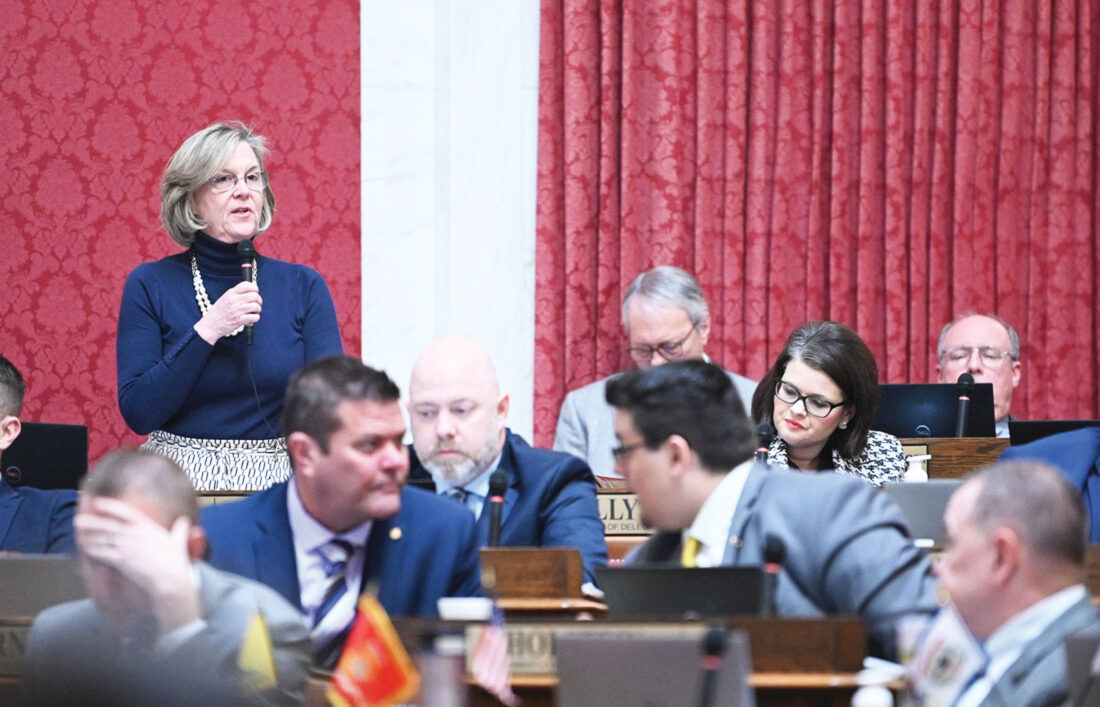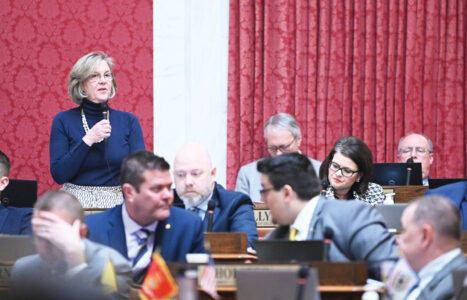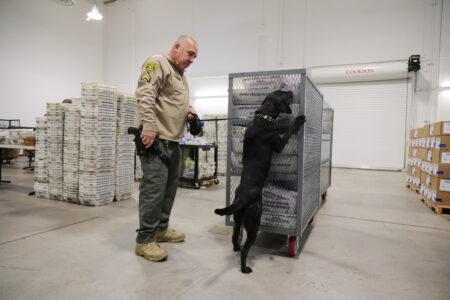Certificate of Need exemption for birthing centers causes debate in W.Va. House
- Delegate John Hott believes eliminating certificate of need for birthing centers will harm rural hospitals. (Photo Provided)
- House Health and Human Resources Committee Chairwoman Amy Summers has long been a supporter of eliminating certificate of need laws. (Photo Provided)

Delegate John Hott believes eliminating certificate of need for birthing centers will harm rural hospitals. (Photo Provided)
CHARLESTON — A bill that would allow for birthing centers in West Virginia to expand without government interference caused much debate Tuesday among Republicans in the House of Delegates.
House Bill 2789, removing birthing centers from certificate of need, passed the House 73-26 early Tuesday afternoon. The bill heads to the state Senate next.
The bill would remove requirements for birthing centers to receive a Certificate of Need from the West Virginia Health Care Authority. West Virginia’s C.O.N. law was put in place by lawmakers in 1977, making it one of 35 states with C.O.N. laws.
West Virginia has only one birthing center, the Family Care Health Center’s OB/GYN and Birth Center on Charleston’s West Side. Birthing centers can provide an alternative to hospitals or home births, providing access to prenatal, intrapartum, and postpartum services for birth and newborn care.
The state already has rules and regulations in place and such centers must be licensed by the state, as well as inspections and complaint procedures. Not all birthing centers are the same, but often have a combination of gynecologists, obstetricians, nurses, nurse-midwives and midwives.

House Health and Human Resources Committee Chairwoman Amy Summers has long been a supporter of eliminating certificate of need laws. (Photo Provided)
Supporters of HB 2789 believe the bill will give women more choice over how they wish to give birth, provide more competition that can lower prices for patients, and lower another governmental hurdle.
“I think that moms and people in general should have a right to choose where they get their healthcare, but in West Virginia we let the government make that decision,” said House Health and Human Resources Committee Chairwoman Amy Summers, R-Taylor.
Summers was a new-natal intensive care unit nurse and has been a vocal proponent of eliminating the state’s C.O.N. law.
“Would I choose a birthing center? No, I personally wouldn’t,” Summers said. “But moms have a right to choose where they want to have their babies. Their only option is the hospital or at home. Birthing centers are a great alternative in between there.”
Certificate of Need rules are designed to help control health care costs and prohibit duplicative or unneeded medical services in communities, but opponents said the goals of C.O.N. laws have not lived up to the hype.
“I think we need to do more. West Virginia is one of the states that has much too much of this,” said Delegate Larry Kump, R-Berkeley.
“The government doesn’t have any business in regulating where somebody wants to set up a birthing center,” said Delegate Chris Pritt, D-Kanawha. “These birthing centers are still going to have to comply with other laws when it comes to the safety of their patients. All this does is if somebody wants to open a birthing center, they’re allowed to compete.”
But despite the goal of HB 2789 eliminating a free-market barrier to a healthcare service, some Republicans raised concerns about providing competition to rural hospitals. According to the roll call, 22 Republicans voted no, joining four Democrats.
“I have concerns about liability and quality of staffing,” said Delegate John Hott, R-Grant. “This bill would negatively hurt my constituency as well as my local hospital … I support maintaining the current C.O.N. program to ensure hospitals are operating in a stable environment and services are not cherry picked off, which is what would happen if we eliminated this C.O.N.”
Others cited West Virginia’s poor birth statistics. According to the U.S. Centers for Disease Control and Prevention, West Virginia ranks ninth in the nation for having a low-birth rate. The state ranks fourth for preterm birth rate and fourth for its infant mortality rate. According to the March of Dimes, the state received an F for its preterm birth rate.
“It’s easy to say this is going to help,” Delegate Bryan Ward, R-Hardy, said. “The frightening things are the what-ifs and West Virginia having the high incidences of low birth rates or at-risk patients. I don’t see how this is going to help in any way the problem.”








